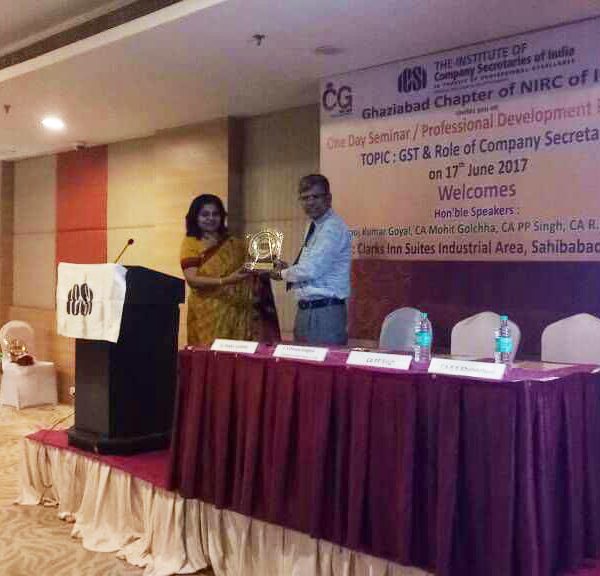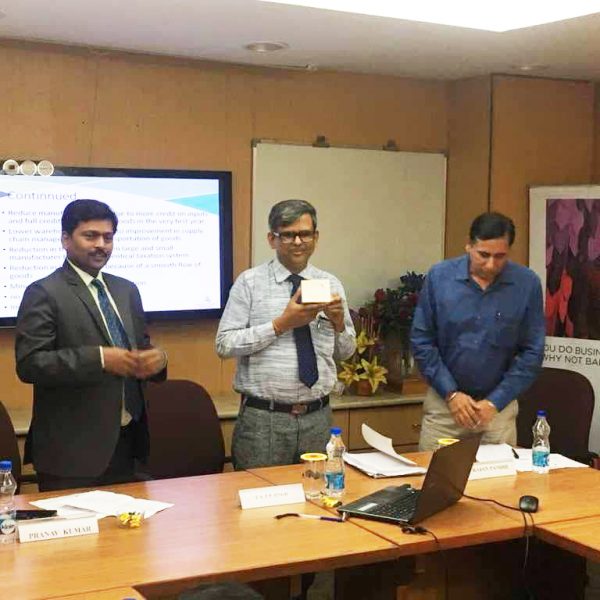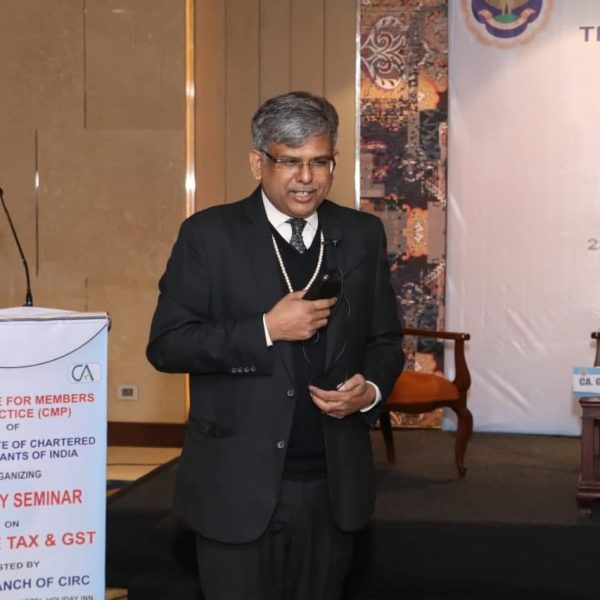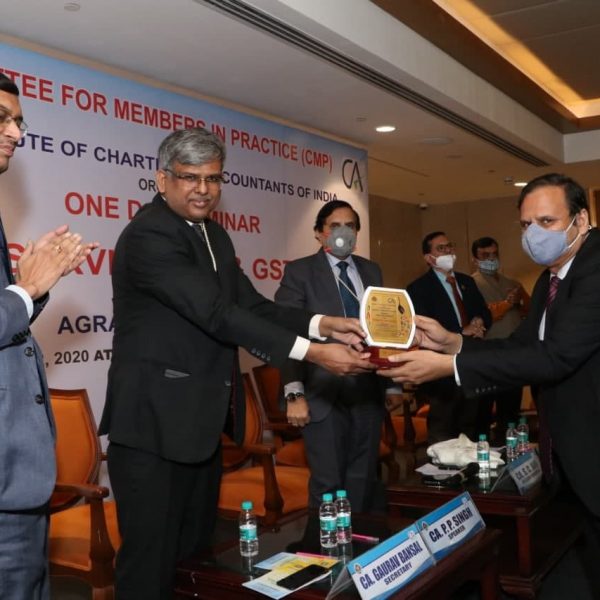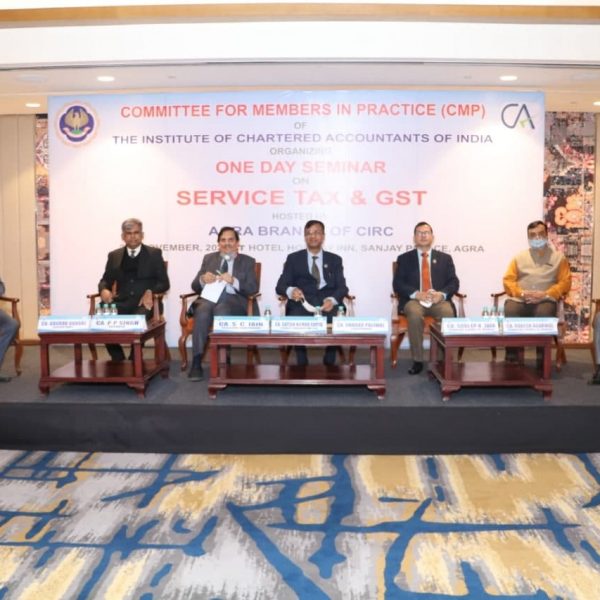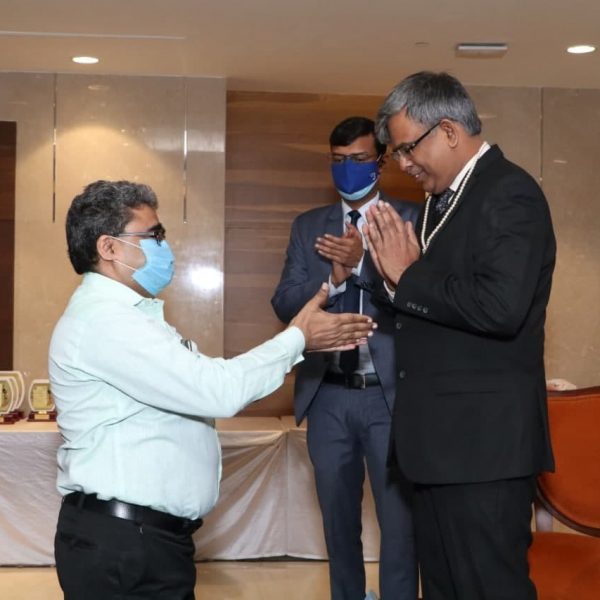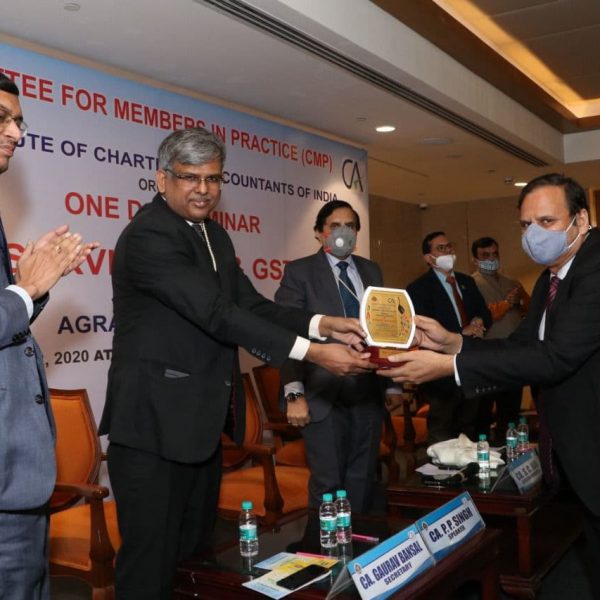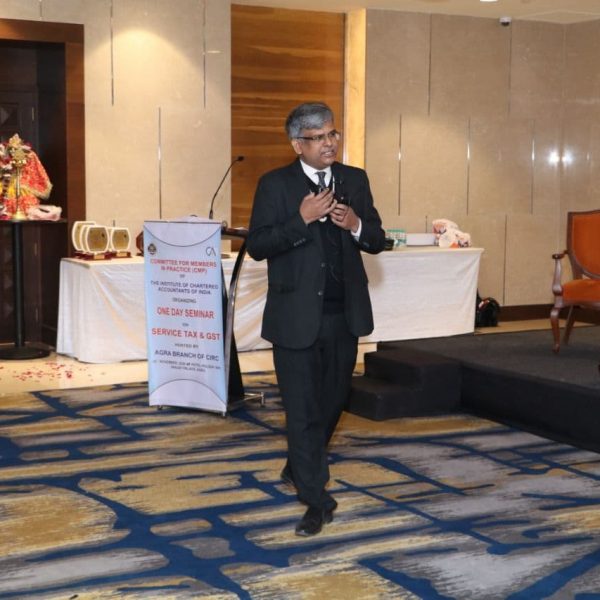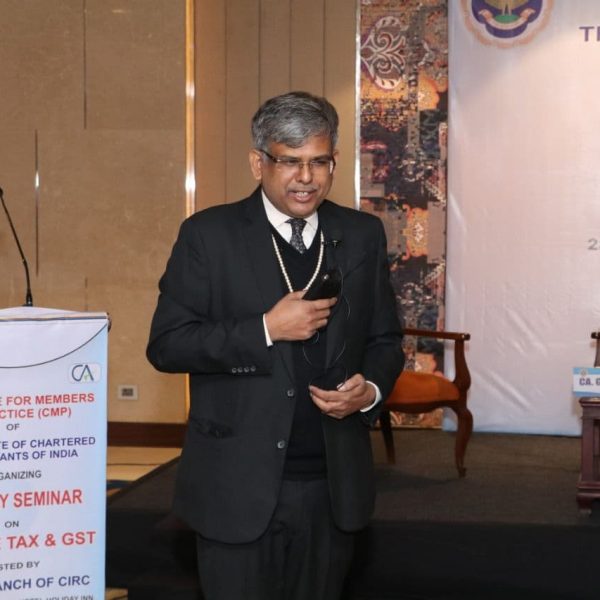List of important deductions from gross total income under chapter VIA
General points:
Deduction not available from certain types of income which is subject to special provisions/special tax rate under chapter XII/XIIA etc. such as section 111A;
Aggregate amount of the deductions shall not exceed the gross total income of the assessee.
If deduction available to AOP/BOI no deduction to member in relation to share of income in AOP/BOI,
Deduction have to be claimed in ITR by assessee, if not claimed in ITR no deduction shall be allowed
Benefit of deduction only once and therefore for the same amount deduction more than once whether in same AY or in different AY not allowed.
Deduction only if income included in the total income. In other words if income is otherwise exempt no deduction allowed because not forming part of gross total income.
| Section | Nature of deduction | Type of taxpayer to whom deduction allowed | Limit with comments | ||||
| 80C | Amount paid or deposited in the previous year, for life insurance premia, deferred annuity, contributions to provident fund, subscription to certain equity shares or debentures, tuition fee for full time education in India.
Some popular deductions as under:
|
individual or a Hindu undivided family | Overall limit for all the items of section 80C. ₹1.50lakh.
Note: limit of individual item also mentioned in each item. This deduction is available to person who has paid or deposited so this deduction need payment outgo either during PY or extended time period. Note: The aggregate amount of deductions under section 80C, section 80CCC and of section 80CCD (1)] shall not, in any case, exceed ₹ 1.50 lakh. |
||||
| 80C(2)(i) | life insurance( other than contract of annuity) of specified persons as mentioned in section 80C(4):
specified persons: i. in the case of individual- spouse, child of such individual. ii. Hindu undivided family- any member thereof; Note: no termination of contract of insurance within two years , otherwise no deduction shall be allowed to the assessee .
|
individual or a Hindu undivided family | Limit:
15% of capital sum assured, for policy issued on or after 1.4.2013, if insurance on life of any person, who is— (a) a person with disability or a person with severe disability as referred to in section 80U, or (b) suffering from disease or ailment as specified in the rules made under section 80DDB, ;
§ 10% of capital sum assured, if policy issued on or after 1.4.2012; § 20% of capital sum assured, if policy issued upto 31.3.2012; |
||||
| 80C(2)(ii) | Contract of annuity of specified persons as mentioned in section 80C(4):
|
individual | Within overall limit of ₹1.50 lakh.
Note: specified persons for individual, the individual, the wife or husband and any child of such individual; |
||||
| 80C(2)(iii) | deduction from the salary payable by or on behalf of the Government to any individual being a sum deducted in accordance with the conditions of his service, for the purpose of securing to him a deferred annuity or making provision for his spouse or children | individual | Limit: one-fifth of the salary. | ||||
| 80C(2)(iv) | Contribution by an individual to any provident fund to which the Provident Funds Act, 1925 apply. Also known as statutory provident fund | individual | Within overall limit of ₹1.50 lakh | ||||
| 80C(2)(v) | Contribution to Public Provident Fund in the name of any specified person.
specified persons: i. in the case of individual- spouse, child of such individual. ii. Hindu undivided family- any member thereof; |
individual or a Hindu undivided family | Minimum contribution amount is Rs 500 and the maximum PPF limit is Rs 1.5 lakh.
Note: while an HUF cannot open a Public Provident Fund (PPF) in its name, it can claim tax deductions for the amount deposited by the HUF in respective PPF accounts of its members. |
||||
| 80C(2)(vi) | contribution by an employee to a recognised provident fund; | individual | Within overall limit of ₹1.50 lakh | ||||
| 80C(2)(vii) | Contribution by an employee to approved superannuation fund. | individual | Within overall limit of ₹1.50 lakh | ||||
| 80C(2)(viii) | Subscription in the name of specified person, such security of the Central Government or any such deposit scheme as that Government may, by notification in the Official Gazette, specify | individual or a Hindu undivided family | Subscription to national saving scheme 1992
Note: specified person, in the case of an individual, the individual or any girl child of that individual, or any girl child(Deposit to ‘Sukanya Samriddhi Account’) for whom such person is the legal guardian, if the scheme so specifies |
||||
| 80C(2)(ix) | subscription to any such savings certificate | individual or a Hindu undivided family | VIII or IX issue. Interest accrued deemed to be reinvested and qualify for deduction. | ||||
| 80C(2)(x) | contribution in the name of any specified person for participation in any unit-linked insurance plan of UTI
|
individual or a Hindu undivided family | Within overall limit of ₹1.50 lakh.
specified persons: i. in the case of individual- spouse, child of such individual. ii. Hindu undivided family- any member thereof;
|
||||
| 80C(2)(xi) | contribution in the name of any specified person for participation in any such unit-linked insurance plan of LIC mutual fund referred in section 10(23D) | individual or a Hindu undivided family | Within overall limit of ₹1.50 lakh.
specified persons: i. in the case of individual- spouse, child of such individual. ii. Hindu undivided family- any member thereof;
|
||||
| 80C(2)(xii) | to effect or to keep in force a contract for notified annuity plan of the Life Insurance Corporation or any other insurer. | Individual or a Hindu undivided family | Notified annuity – new jeevan dhara-I, new jeevan akshay, new jeevan aksha-I, new jeevan akshay-II. | ||||
| 80C(2)(xiii) | subscription to any units of any Mutual Fund referred u/s 10(23D) | individual or a Hindu undivided family | Within overall limit of ₹1.50 lakh | ||||
| 80C(2)(xiv) | Contribution by an individual to any pension fund set up by any Mutual Fund referred to in section 10(23D). | individual | Within overall limit of ₹1.50 lakh | ||||
| 80C(2)(xv) | Subscription to notified deposit scheme of, or as a contribution to any such pension fund set up by, the National Housing Bank. | individual or a Hindu undivided family | Home loan account scheme of National Housing Bank. | ||||
| 80C(2)(xvi) | subscription to notified deposit scheme of—
(a) a public sector company which is engaged in providing long-term finance for construction or purchase of residential houses in India; or (b) any authority constituted in India by or under any law enacted either for the purpose of dealing with and satisfying the need for housing accommodation or for the purpose of planning, development or improvement of cities, towns and villages, or for both, |
individual or a Hindu undivided family | Within overall limit of ₹1.50 lakh | ||||
| 80C(2)(xvii) | as tuition fees (excluding any payment towards any development fees or donation or payment of similar nature), whether at the time of admission or thereafter,—
(a) to any university, college, school or other educational institution situated within India; (b) for the purpose of full-time education of any of the specified persons |
individual or a Hindu undivided family | Within overall limit of ₹1.50 lakh.
Note: in the case of an individual, any two children of such individual. |
||||
| 80C(2)(xviii) | purchase or construction of a residential house property the income from which is chargeable to tax under the head “Income from house property”.
payments are made towards or by way of— (a) any instalment or part payment of the amount due under any self-financing or other scheme of any development authority, housing board or other authority engaged in the construction and sale of house property on ownership basis; or (b) any instalment or part payment of the amount due to any company or co-operative society of which the assessee is a shareholder or member towards the cost of the house property allotted to him; or (c) repayment of the amount borrowed by the assessee from CG/SG, bank, LIC, National Housing Bank, public company formed and registered in India for long term finance for construction or purchase of houses in India for residential purposes/ company in which the public are substantially interested or any co-operative society, engaged in the business of financing the construction of houses/ employer where such employer is an authority or a board or a corporation or any other body established or constituted under a Central or State Act/ public company or a public sector company or a university established by law or a college affiliated to such university or a local authority or a co-operative society; (d) stamp duty, registration fee and other expenses for the purpose of transfer of such house property to the assessee,
|
individual or a Hindu undivided family | Within overall limit of ₹1.50 lakh
Exclusion/ deduction not available in respect of following payments such as :
§ admission fee, cost of share and initial deposit for becoming such shareholder or member § cost of any addition or alteration to, or renovation or repair of, the house property which is carried out after the issue of the completion certificate/ house property or any part thereof has either been occupied by the assessee or any other person on his behalf / let out § expenditure in respect of which deduction is allowable under the provisions of section 24; [note: under section 24 deduction for repair and collection charge and interest. Note: no transfers of the house property before the expiry of 5 years from the end of the financial year in which possession of such property is obtained otherwise shall be deemed to be the income of the assessee of such previous year and shall be liable to tax in the assessment year relevant to such previous year.
|
||||
| 80C(2)(xix) | Subscription to equity shares or debentures forming part of any eligible issue of capital approved by the Board.
Lock in period for sale /transfer such share is of 3 years from the date of their acquisition, otherwise the aggregate amount of the deductions of income so allowed in respect of such equity shares or debentures in the previous year or years preceding the previous year in which such sale or transfer has taken place shall be deemed to be the income of the assessee of such previous year and shall be liable to tax in the assessment year relevant to such previous year. |
individual or a Hindu undivided family | eligible issue of capital” means an issue made by a public company formed and registered in India or a public financial institution and the entire proceeds of the issue are utilised wholly and exclusively for the purposes of any business referred to in section 80-IA(4);
section 80-IA (4) enterprise for infrastructure project. |
||||
| 80C(2)(xx) | subscription to any units of any mutual fund referred to in clause (23D) of section 10 and approved by the Board | individual or a Hindu undivided family | No separate limit, within overall limit of ₹1.50 lakh
|
||||
| 80C(2)(xxi) | term deposit with a scheduled bank for a fixed period of not less than 5 years which is in accordance with a scheme framed and notified, by the Central Government, in the Official Gazette | individual or a Hindu undivided family | No separate limit, within overall limit of ₹1.50 lakh
|
||||
| 80C(2)(xxii) | subscription to notified bonds issued by the National Bank for Agriculture and Rural Development | individual or a Hindu undivided family | No separate limit, within overall limit of ₹1.50 lakh
|
||||
| 80C(2)(xxiii) | Any sum deposited in an account under the Senior Citizens Savings Scheme Rules, 2004.
Lock in period of deposit is 5 years: If any amount, including interest accrued thereon, is withdrawn by the assessee from his account referred to in clause (xxiii) or clause (xxiv) of sub-section (2), before the expiry of the period of 5 years from the date of its deposit [except amount received by the nominee or legal heir of the assessee, on the death of such assessee, other than interest, if any, accrued thereon, which was not included in the total income of the assessee for the previous year or years preceding such previous year] the amount so withdrawn shall be deemed to be the income of the assessee of the previous year in which the amount is withdrawn and shall be liable to tax in the assessment year relevant to such previous year: |
Senior Citizens individual | No separate limit, within overall limit of ₹1.50 lakh.
|
||||
| 80C(2)(xxiv) | 5 year time deposit in an account under the Post Office Time Deposit Rules, 1981;
Note: Lock in period of deposit is 5 years same as above. |
Senior Citizens individual | No separate limit, within overall limit of ₹1.50 lakh
|
||||
| 80C(2)(xxv) | Any sum contributed by employee of the Central Government, as a contribution to a specified account of the pension scheme referred to in section 80CCD—
(a) for a fixed period of not less than 3 years; and (b) Which is in accordance with the scheme as may be notified by the Central Government in the Official Gazette for the purposes of this clause. |
Individual employee of the Central Government | No separate limit, within overall limit of ₹1.50 lakh
|
||||
| 80CCA | Deduction for deposits under National Savings Scheme or payment to a deferred annuity plan of the Life Insurance Corporation as the Central Government may, by notification in the Official Gazette, specify, | individual or a Hindu undivided family | ₹ 40000/-
No deduction from AY 1992-93 |
||||
| 80CCB | Deduction in respect of investment made under Equity Linked Savings Scheme | individual or a Hindu undivided family | ₹ 10000/-
No deduction from AY 1992-93,because covered in section 80C itself |
||||
| 80CCC | Deduction in respect of contribution to certain pension funds.
Note: The aggregate amount of deductions under section 80C, section 80CCC and of section 80CCD (1)] shall not, in any case, exceed ₹ 1.50 lakh. |
individual | ₹ 1.50
If deduction in this section for amount paid or deposited by the assessee, no deduction u/s 80C |
||||
| 80CCD. (1) | Deduction in respect of contribution to pension scheme of Central Government- contributed/paid by taxpayer.
Meaning of salary : salary” includes dearness allowance, if the terms of employment so provide, but excludes all other allowances and perquisites Note: The aggregate amount of deductions under section 80C, section 80CCC and of section 80CCD (1)] shall not, in any case, exceed ₹ 1.50 lakh. |
individual | employee, 10% of his salary in the previous year
Others- 20% of his gross total income in the previous year. Maximum: ₹ 25000/- |
||||
| 80CCD. (2) | Deduction in respect of contribution to pension scheme of Central Government- contributed/paid by employer.
|
individual | 14% of salary -contribution is made by the Central Government;
10% of salary –contribution is made by any other employer,
|
||||
| 80D. | Deduction in respect of health insurance premia. Insurance on the health of the assessee or his family or member of HUF.
Note: family” means the spouse and dependent children of the assessee. |
individual or Hindu undivided family | Overall Limit of ₹ 50,000/- individual limit as under:
1.Insurance premium for self and family member- ₹ 25000/- and additional ₹ 25000/- for parents( for senior citizen limit is ₹ 50,000/- ) 2. For medical expenditure of self and family member ₹ 50000/- and additional ₹ 50000/- for parents. 3. preventive health check – in aggregate limit of ₹ 5000/- for self , family and parents |
||||
| 80DD
80DDB |
Expenditure on maintenance including medical treatment of a dependent who is a person with disability.
Note: assessee must have disability certificate from medical authority in the form and manner, as may be prescribed.
Section 80DDB: Deduction in respect of medical treatment, etc. of such disease or ailment as may be specified in the rules 11 DD made in this behalf by the Board. Prescription for medical treatment from a neurologist, an oncologist, a urologist, a haematologist, an immunologist or such other specialist. |
individual or a Hindu undivided family | Deduction under section 80DDB irrespective of actual expenditure is ₹ 75,000/-
For severe disability ₹ 1.25 lakh. Note: above limit is irrespective of actual expenditure. Note: if assessee himself is disable, deduction under section 80U.
Deduction under section 80DDB: Deduction upto ₹ 40000/- based on actual expenditure. For expenditure on senior citizen deduction upto ₹ 1 lakh. (1) for individual- expense on treatment of himself or dependent (2) for HUF- any dependent member. |
||||
| 80E | Deduction for Interest on loan taken by him from any financial institution or any approved charitable institution for the purpose of pursuing his higher education or for the purpose of higher education of his relative.
Note: higher education” means any course of study pursued after passing the Senior Secondary Examination or its equivalent Note: “relative”, in relation to an individual, means the spouse and children of that individual or the student for whom the individual is the legal guardian |
individual | Deduction available for own education of taxpayer or education of his relative.
Deduction for interest paid without any limit. Deduction allowed upto 8 AY i.e in initial AY and 7 AY immediately succeeding the initial AY or until the interest is paid by the assessee in full, whichever is earlier. |
||||
| 80EE | Deduction in respect of interest on loan taken for residential house property.
Note: deduction u/s 80EE is in addition to deduction of interest u/s 24(b) so an individual can claim deduction of ₹ 2 lakh in section 24(b) and ₹ 50000/- under section 80 EE.
|
individual | Limit: ₹ 50,000/-
Conditions: i. loan has been sanctioned during FY 2016-17 by the financial institution ii. amount of loan sanctioned upto ₹ 35 lakh iii. value of residential house property does not exceed ₹ 50 lakh iv. Assessee does not own any residential house property on the date of sanction of loan. |
||||
| 80EEA. | Deduction in respect of interest on loan taken for certain house property from bank or housing finance company.
Note: Deduction from AY 2020-21 onwards but loan must be sanctioned upto 31-03-2021. Note: this deduction is also in addition to deduction of interest u/s 24(b) |
individual | Limit: ₹ 1,50,000/-
Conditions: i. loan has been sanctioned by the financial institution during FY 2019-20 & 2020-21 ii. stamp duty value of residential house property does not exceed iii. Assessee does not own any residential house property on the date of sanction of loan. |
||||
| 80EEB. | Deduction for interest payable on loan taken from any financial institution for the purpose of purchase of an electric vehicle.
Applicable from AY 2020-21 onwards. |
individual | Limit: ₹ 1,50,000/-
Conditions: Loan has been sanctioned during 1st day of April, 2019 and ending on the 31st day of March, 2023. |
||||
| 80G | Deduction in respect of donations to certain funds, charitable institutions, etc.
Note: No deduction shall be allowed under this section in respect of donation of any sum exceeding ₹ 2000/- unless such sum is paid by any mode other than cash. Illustration: if ₹ 10000/- paid in cash deduction shall be limited to ₹ 2000/- |
Any assessee | Limit:
(A) Deduction -100% without limit (B) Deduction -50% without limit (C) Deduction -100% with limit of 10% of adjusted gross total income. i. e adjusted gross total income means all the deductions from gross total income except deduction u/s 80G. |
||||
| 80GG | Deductions in respect of rents paid. Deduction for any expenditure incurred by him on rent for accommodation occupied by him for the purposes of his own residence.
Deduction not allowed in following cases: (I) Individual is claiming HRA exemption u/ s 10(13A) (II) where any residential accommodation is—
|
individual | Limit:
lower of the followings: (1) ₹ 5000/- per month or part of month (2) 25% of total income for the year(3) rent paid -10 % of total income for the year. Meaning of total income: total income before allowing deduction for any expenditure under this section
|
||||
| 80GGA | Deduction in respect of certain donations made for scientific research or rural development by those assessee having no income from business or profession.
Note: assessee having income under head business can claim deduction under business head u/s 35 |
Any assessee | Restriction on deduction if paid in cash: No deduction shall be allowed under this section in respect of any sum exceeding ₹ 2000/-unless such sum is paid by any mode other than cash.in other words if donation in cash exceeds ₹ 2000/- deduction shall be allowed to ₹ 2000/- only. | ||||
| 80GGB | Deduction in respect of contributions given by companies to political parties or an electoral trust: | Indian company | No limit. For eligible deduction contribution must be in any mode other than cash
Note: no deduction shall be allowed under this section in respect of any sum contributed by way of cash. |
||||
| 80GGC. | Deduction in respect of contributions given by any person to political parties. | any person, except local authority and every artificial juridical person wholly or partly funded by the Government | No limit. For eligible deduction contribution must be in any mode other than cash
Note: no deduction shall be allowed under this section in respect of any sum contributed by way of cash. |
||||
| 80-IAC | Deduction of profit and gains of eligible business of eligible start up.
Note: eligible business” means a business carried out by an eligible start-up engaged in innovation, development or improvement of products or processes or services or a scalable business model with a high potential of employment generation or wealth creation; eligible start-up” means a company or LLP engaged in eligible business which fulfils the following conditions, namely:—
(a) it is incorporated on or after the 1st day of April, 2016 but before the 1st day of April, 2022; (b) the total turnover of its business does not exceed ₹ 100 crore in the previous year relevant to the AY for which deduction under sub-section (1) is claimed]; and (c) it holds a certificate of eligible business from the Inter-Ministerial Board of Certification as notified in the Official Gazette by the Central Government; |
company or LLP | 100% of the profits and gains derived from such business for 3 consecutive AY out of 10 years beginning from the year in which the eligible start-up is incorporated.
Conditions: 1. not formed by splitting up, or the reconstruction, of a business already in existence 2. Not formed by the transfer to a new business of machinery or plant previously used for any purpose in India, however upto 20% of old plant and machinery permissible.
|
||||
| 80-IBA | Deductions for profits and gains from housing projects or rental housing project also from AY 2022-23[Finance Act, 2021, w.e.f. 1-4-2022
Note: 1.”carpet area” shall have the same meaning as assigned to it in section 2(k) of the RERA 2016. 2. competent authority” means the authority empowered to approve the building plan by or under any law. 3. floor area ratio” means the quotient obtained by dividing the total covered area of plinth area on all the floors by the area of the plot of land. 4. rental housing project” means a project which is notified by the Central Government in the Official Gazette under this clause on or before the 31st day of March, 2022 and fulfils such conditions as may be specified in the said notification; 5. housing project” means a project consisting predominantly of residential units with such other facilities and amenities as the competent authority may approve
|
Any assessee | Deduction: 100% of the profits and gains derived from such business.
Major Conditions: 1. project is approved by the competent authority on or before the 31st day of March, 2021; 2. project is completed within a period of 5 years from the date of approval, 3. carpet area of the shops and other commercial establishments included in the housing project does not exceed 3% of the aggregate carpet area; 4. project is on a plot of land measuring not less than 1000sq mtr and floor area ratio not less than 90% for Bengaluru, Chennai, Delhi NCR, Hyderabad, Kolkata and Mumbai/ for other area 2000sq mtr and minimum floor area ratio 80%. 5. stamp duty value of a residential unit in the housing project does not exceed ₹ 45 lakh, 6. residential unit in the housing project is allotted to an individual 7. Separate books of account in respect of the housing project.
|
||||
| 80JJA | Deduction in respect of profits and gains from business of collecting and processing of bio-degradable waste for generating power or producing bio-fertilizers, bio-pesticides or other biological agents or for producing bio-gas or making pellets or briquettes for fuel or organic manure | Any assessee | Amount of deduction: whole of such profits and gains for a period of 5 consecutive AY beginning with the AY relevant to the previous year in which such business commences. | ||||
| 80JJAA | Deduction in respect of employment of new employees.
Note: Additional employee cost” means the total emoluments paid or payable to additional employees employed during the previous year. Additional employee” means an employee who has been employed during the previous year and whose employment has the effect of increasing the total number of employees employed by the employer as on the last day of the preceding year. but does not include— a) an employee whose total emoluments are more than ₹25000/- per month; or (b) an employee for whom the entire contribution is paid by the Government under the Employees’ Pension Scheme notified in accordance with the provisions of the Employees’ Provident Funds and Miscellaneous Provisions Act, 1952 or (c) an employee employed for a period of less than 240 days/150 days for apparel, footwear, leather products during the previous year; or (d) an employee who does not participate in the recognized provident fund. |
assessee to whom section 44AB applies | Deduction equal to 30% of additional employee cost incurred in the course of such business in the previous year, for 3 AY including the AY relevant to the previous year in which such employment is provided.
Conditions: no deduction, if a) if the business is formed by splitting up, or the reconstruction, of an existing business except 33B situation. b) business is acquired by the assessee by way of transfer from any other person or as a result of any business reorganisation c) report of CA in Form No. 10DA
emoluments” means any sum paid or payable to an employee in lieu of his employment by whatever name called, but does not include a) any employer contribution paid or payable by the employer to any pension fund or provident fund or any other fund for the benefit of the employee under any law for the time being in force; and b) any lump sum payment paid or payable to an employee at the time of termination of his service or superannuation or voluntary retirement, such as gratuity, severance pay, leave encashment, voluntary retrenchment benefits, commutation of pension and the like. |
||||
| 80LA. | Deductions in respect of certain incomes of Offshore Banking Units and International Financial Services Centre.
Conditions: no deduction unless assessee furnishes along with the return of income i. Report of CA certifying the deduction in Form No. 10CCF. ii. copy of the permission obtained under section 23(1)(a) or copy of permission or registration obtained under the International Financial Services Centre Authority Act, 2019
|
Bank having Offshore Banking Unit in SEZ / unit or International Financial Services Centre | Deduction: 100% of such income for 5 consecutive AY and thereafter 50% of such income for 5 consecutive assessment years.
Unit of an International Financial Services Centre: 100% of income for any 10 consecutive AY, at the option of the assessee, out of 15 years, |
||||
| 80M. | Deduction in respect of certain inter-corporate dividends, If company received income by way of dividends from any other domestic company or a foreign company or a business trust.
“Due date” means the date one month prior to the date for furnishing the return of income under section 139(1). |
domestic company | Deduction of an amount equal to so much of the amount of income by way of dividends received from such other domestic company or foreign company or business trust as does not exceed the amount of dividend distributed by it on or before the due date. Here amount of deduction is linked with the amount of dividend distributed.
|
||||
| 80P | Deduction in respect of income of co-operative societies.
Note: The provisions of this section shall not apply in relation to any co-operative bank other than a primary agricultural credit society or a primary co-operative agricultural and rural development bank. co-operative bank” and “primary agricultural credit society” shall have the meanings respectively assigned to them in Part V of the Banking Regulation Act, 1949 Primary co-operative agricultural and rural development bank” means a society having its area of operation confined to a taluk and the principal object of which is to provide for long-term credit for agricultural and rural development activities. |
co-operative society | (a) Deduction of whole of the amount of profits and gains of business attributable to any one or more of specified activities such as banking or providing credit facilities to its members/ cottage industry/ marketing of agricultural produce grown by its members/ purchase of agricultural implements, seeds, livestock or other articles intended for agriculture for the purpose of supplying them to its members/ processing, without the aid of power, of the agricultural produce of its members/ collective disposal of the labour of its members/ fishing or allied activities, that is to say, the catching, curing, processing, preserving, storing or marketing of fish or the purchase of materials and equipment in connection therewith for the purpose of supplying them to its members.
(b) Deduction of whole of the amount of profits and gains of such business of primary co-operative society, being a engaged in supplying milk, oilseeds, fruits or vegetables raised or grown by its members to—
(i) a federal co-operative society, being a society engaged in the business of supplying milk, oilseeds, fruits, or vegetables, as the case may be; or (ii) the Government or a local authority; or (iii) a Government company
(c ) other co-operative society – amount of profits and gains subject to following limit: (i) For consumers’ co-operative society- ₹ 1 lakh (ii) Others – ₹ 50,000/- (d) interest or dividends derived by the co-operative society from its investments with any other co-operative society – deduction of whole such amount (e) letting of godowns or warehouses for storage, processing or facilitating the marketing of commodities- deduction of whole such amount , (f) other if GTI upto ₹ 20,000/- deduction of amount of any income by way of interest on securities or any income from house property chargeable under section 22.
|
||||
| 80PA | Deduction in respect of certain income of Producer Companies
Note: Producer Company” shall have the meaning assigned to section 581A (l) of the Companies Act, 1956.
|
Producer Company having turnover less than ₹ 100 crore in the PY. | Deduction: 100% of the profits and gains derived from eligible business for the previous year relevant to an assessment year commencing on or after the 1st day of April, 2019, but before the 1st day of April, 2025.
eligible business” means— (a) the marketing of agricultural produce grown by the members; or (b) the purchase of agricultural implements, seeds, livestock or other articles intended for agriculture for the purpose of supplying them to the members; or (c) the processing of the agricultural produce of the members;
|
||||
| 80Q | Deduction in respect of profits and gains from the business of publication of books.
Note: Books” shall not include newspapers, journals, magazines, diaries, brochures, tracts, pamphlets and other publications of a similar nature by whatever name called. |
Deduction: 20% of the profit from such business.
Deduction in one of the 4 AY commencing from AY 1992-93. In other words no deduction after AY 1995-96. |
|||||
| 80QQB. | Deduction in respect of royalty income, etc., of authors of certain books.
GTI include income derived by him in the exercise of his profession, on account of any lump sum consideration for the assignment or grant of any of his interests in the copyright of any book being a work of literary, artistic or scientific nature, or of royalty or copyright fees (whether receivable in lump sum or otherwise) in respect of such book. Note: books” shall not include brochures, commentaries, diaries, guides, journals, magazines, newspapers, pamphlets, text-books for schools, tracts and other publications of similar nature, by whatever name called; author” includes a joint author |
individual resident in India | Limit of deduction: deduction under this section shall be equal to the whole of such income or an amount of ₹ 3 lakh, whichever is less.
Note: if consideration is not lump sum then any amount of income, before allowing expenses attributable to such income, as is in excess of 15% of the value of such books sold during the previous year shall be ignored. Note: income earned from any source outside India, to claim deduction it must be brought to India in convertible foreign exchange within 6 months from the end of the previous year. Conditions: § No deduction unless Certificate in the prescribed form 10CCD. § No deduction shall be allowed in respect of any income earned from any source outside India, unless the assessee furnishes a certificate, in the prescribed Form No. 10H. |
||||
| 80RRB. | Deduction in respect of royalty income on patents.
Patentee has Income by way of royalty in respect of a patent registered on or after the 1st day of April, 2003 under the Patents Act, 1970. |
Individual resident in India | Limit: deduction of such income limited to ₹ 3 lakh.
To claim deduction Income earned from any source outside India, to claim deduction it must be brought to India in convertible foreign exchange within 6 months from the end of the previous year. Conditions: § No deduction unless Certificate in the prescribed form No. 10CCE. No deduction shall be allowed in respect of any income earned from any source outside India, unless the assessee furnishes a certificate, in the prescribed Form No. 10H. |
||||
| 80TTA | Deduction in respect of interest on deposits in savings account with bank/post office/ co-operative society engaged in carrying on the business of banking.
Time deposits” means the deposits repayable on expiry of fixed periods.]
|
individual or a Hindu undivided family | Limit: upto ₹ 10,000/-
No deduction for interest on time deposit. Those claiming deduction u/s 80TTB are not allowed to claim deduction under this section. In other words either deduction u/s 80 TTA or 80 TTB not in both. |
||||
| 80TTB | Deduction in respect of interest on deposits of senior citizens from bank/post office/ co-operative society engaged in carrying on the business of banking.
Note: senior citizen” means an individual resident in India who is of the age of 60 years or more at any time during the relevant previous year.] |
Individual senior citizen | Limit: upto ₹ 50,000/-
In this section deduction for interest on term deposit as well which is not available in section 80TTA.
|
||||
| 80U | Deduction in case of a individual assessee with disability/ severe disability:
Note: person with disability” means a person referred to in section 2(t) of the Persons with Disabilities (Equal Opportunities, Protection of Rights and Full Participation) Act, 1995.
person with severe disability” means 1. 80% or more of one or more disabilities, as referred to in section 56(4) of the Persons with Disabilities (Equal Opportunities, Protection of Rights and Full Participation) Act, 1995 2. person with severe disability referred to in clause (o) of section 2 of the National Trust for Welfare of Persons with Autism, Cerebral Palsy, Mental Retardation and Multiple Disabilities Act, 1999
medical authority” means the medical authority as referred to in section 2(p) of the Persons with Disabilities (Equal Opportunities, Protection of Rights and Full Participation) Act, 1995 |
individual, being a resident | Deduction for disability of assessee, not linked with any expenditure or payment
Limit: 1. person with disability – ₹ 75000/- 2. person with severe disability– ₹ 1.25 lakh Eligibility: certificate issued by the medical authority in the form No. 10-IA and this certificate must be valid during PY. |

